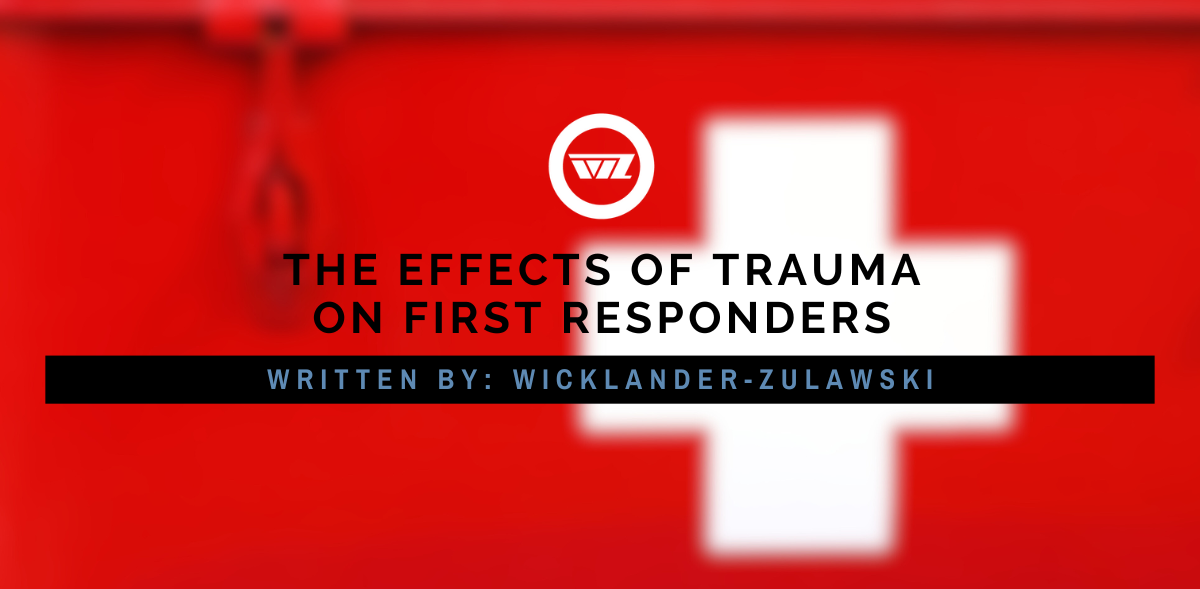In observance of First Responder Wellness Week, we have created this quick guide to recognize the effects of trauma on first responders. The information below is taken from this WZ Coffee Before Class presentation by Bryan Barlow, CFI. We recommend viewing the full video and bookmarking the WZ Cares page for helpful mental health resources catering to first responders.
The Importance of Self-Care for First Responders
First responders are often confronted with traumatic events and distressing situations, which can have a profound impact on their mental well-being. First responders must prioritize self-care to mitigate the effects of vicarious trauma, compassion fatigue, and post-traumatic stress disorder (PTSD) that may arise from their line of work.
Recognizing Trauma
Trauma can manifest in diverse forms, encompassing major events as well as the ongoing exposure to distressing incidents. First responders must acknowledge that their continual encounters with traumatic situations can take a toll on their mental health.
Types of Trauma Experienced by First Responders
Compassion Fatigue
Compassion fatigue, often confused with burnout, occurs when the accumulation of negative or distressing experiences in their roles impedes the first responder’s ability to recharge. This can lead to emotional exhaustion, signaling the need for a substantial break.
Vicarious Trauma
Vicarious trauma involves internalizing other people’s trauma, ultimately altering the first responder’s worldview. It extends beyond experiencing burnout and can significantly impact an individual’s perception of the world.
Secondary Post-Traumatic Stress Disorder
Secondary PTSD results from repeated exposure to traumatic events that did not necessarily happen directly to the first responder (seeing the aftermath, taking reports of traumatic incidents). This is particularly common in professions that involve constantly encountering distressing situations, such as paramedics, firefighters, and police officers.
Post-Traumatic Stress Disorder
PTSD (also referred to as Post-Traumatic Stress Injury) is the result of the brain’s response to trauma that has long-term effects, greatly impacting the life of the affected individual.
Recognizing the Symptoms
Trauma
Exposure to Trauma is the first prerequisite for PTSD and related issues. This can be an individual event, multiple exposures to different events, short term and long term. Being involved in a single combat engagement or taking care of a parent during a year-long hospice stay are examples.
Intrusion Events
Intrusion events, characterized by overwhelming feelings related to the traumatic situation or actual dissociation to the memory of a traumatic event, can cause extreme distress and discomfort, often without a clear trigger. Identifying these experiences and what causes them can be challenging (the individual may not immediately recognize the event as post-traumatic stress), yet they are indicative of underlying trauma. First responders may experience heightened anxiety and discomfort without understanding the underlying cause. These triggered states are common reactions to traumatic events and should be recognized as signals of distress.
Avoidance Behaviors
Once an individual recognizes the triggers for intrusion events, significant avoidance behaviors (often pathological) may emerge as a coping mechanism. First responders may avoid specific topics, situations, or discussions to manage their emotional response to trauma.
Triggers
First responders may experience heightened anxiety and discomfort without understanding the underlying cause. These triggered states are common reactions to traumatic events and should be recognized as signals of distress.
The Importance of Seeking Support
It is essential for first responders to seek support and communicate their experiences with trusted individuals, such as family members, colleagues, or mental health professionals. Sharing the emotional burden can foster a sense of connection (avoidance of speaking to family members about distressing topics can cause a feeling of disconnection – the first responder doesn’t have to go into distressing details but can and should acknowledge they are having a difficult time with a certain situation) and provide an outlet for processing challenging situations.
In conclusion, the nature of the first responder role exposes individuals to various forms of trauma, highlighting the importance of implementing robust self-care strategies. By recognizing the signs of trauma and actively addressing them, first responders can safeguard their mental well-being and maintain a resilient approach to their professional responsibilities.
Wicklander-Zulawski & Associates is a consulting and training organization dedicated to supporting professionals in the difficult task of identifying the truth. Our passion for the truth has led us to become a world leader in non-confrontational interview and interrogation training.




